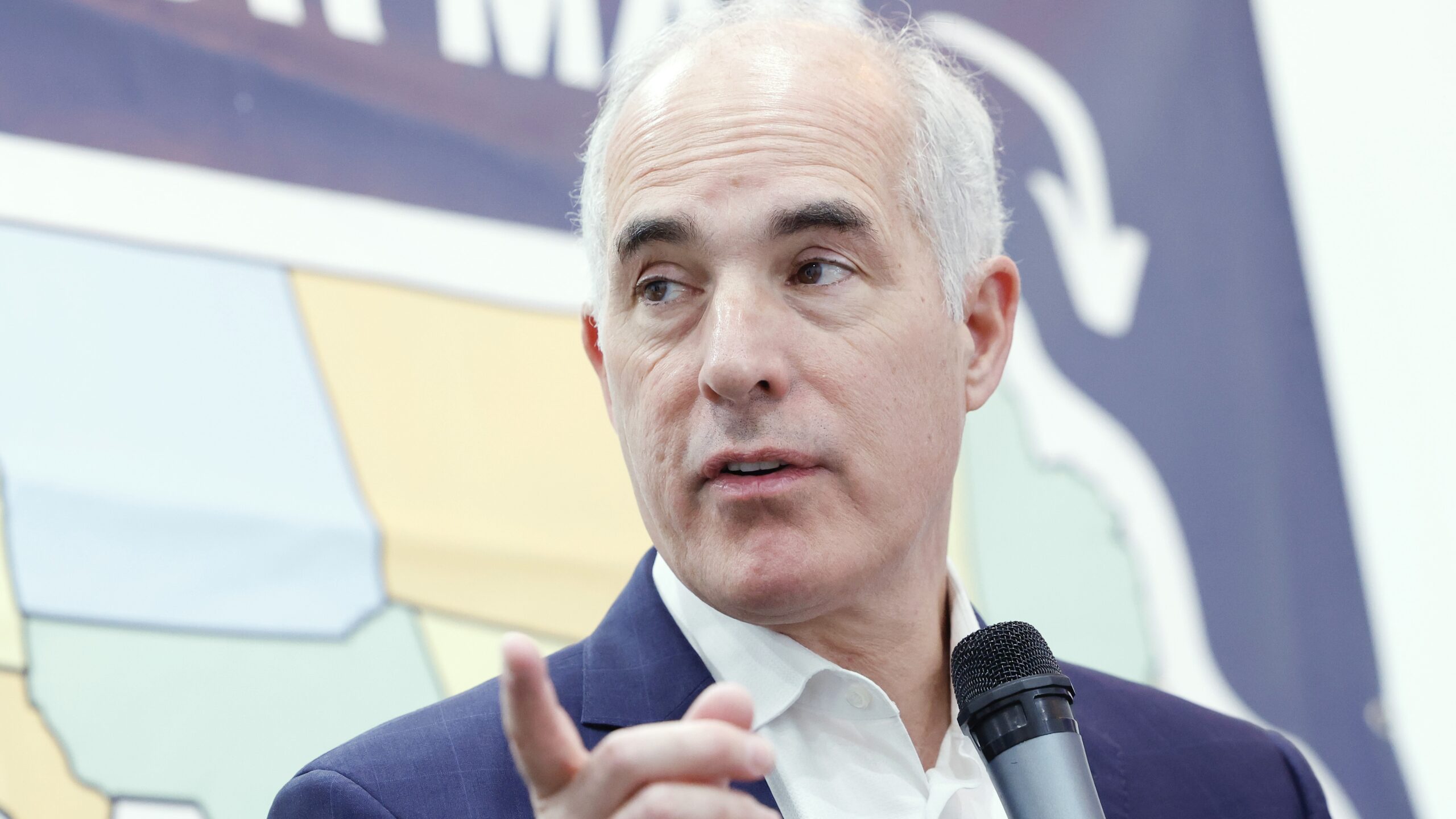Javier Milei’s bold economic reforms overshadowed by controversial AI security plans
Argentina’s firebrand leader, Javier Milei, keeps winning. He promised a libertarian revolution in the long-socialist country, and this month, he’s crushing inflation, advancing an austere new zero-deficit budget, and scheduling a high-level sit-down on the future of cryptocurrencies with the founder of Cardano. But unfortunately, there’s another side to Milei’s policy plans — one straight out of dystopian sci-fi. When Javier Milei secured the presidency of Argentina last November, the global far right erupted in celebration. Milei’s landslide victory over the Peronist candidate, Sergio Massa, by nearly 3 million votes ignited hope among populists worldwide. Donald Trump and Jair Bolsonaro were among the first to cheer their Argentine ally, with Trump confidently predicting that Milei would “truly make Argentina great again” and Bolsonaro praising the win as a triumph for “honesty, progress, and freedom.” The admiration and praise were understandable — after all, the Argentinian people elected a man of the people, someone who promised to do his utmost to work in their best interests. Authorities could potentially detain individuals based on predicted future crimes, stripping away the very essence of free will and personal liberty. Which makes Milei’s latest initiative so baffling and unsettling. Under his leadership, Argentina recently established a so-called Applied Artificial Intelligence for Security Unit. This new agency, part of the Ministry of Security, is tasked with leveraging AI to analyze vast amounts of historical crime data and monitor social media interactions, all to predict and prevent criminal activities. Such an initiative might seem forward-thinking and innovative. The idea that AI can forecast criminal behavior based on historical patterns sounds efficient, and perhaps in a certain way, it is. But it’s littered with potential land mines: overreach, profiling, and unwarranted surveillance. The emphasis on scanning social media for “potential threats” risks devolving into invasive scrutiny of the everyday lives of ordinary citizens, all under a vaguely defined and potentially overbroad mandate. Lamentably, this isn’t just about Milei or Argentina. AI-driven surveillance is becoming increasingly common in countries worldwide, including in the United States. In China, a country I worked in for 18 months, AI is already employed to monitor citizens’ behavior, with those deemed “untrustworthy” facing consequences ranging from travel bans to restricted access to social services. One could argue that the situation has already shifted, with cities like New York and London now resembling Beijing and Shanghai in terms of surveillance. Of course, this dystopian reality is eerily similar to what we’ve seen depicted in episodes of "Black Mirror" or the movie "Minority Report." Authorities could potentially detain individuals based on predicted future crimes, stripping away the very essence of free will and personal liberty. Social media posts, online searches, and even the most mundane activities could fall under the relentless gaze of automated systems designed to flag anything deemed suspicious. As if that’s not bad enough, these systems can easily be misused, leading to unwarranted interventions, the targeting of political dissenters, or the suppression of dissenting voices. As I write this, all across Europe, including in Ireland, my place of birth, "hate speech" laws are being implemented with increasing severity. Individuals found guilty of crossing the line, even through a social media post, are facing lengthy prison sentences. Now is the time for citizens and lawmakers to engage with these developments critically. Ensuring that the pursuit of security does not come at the cost of the liberties it aims to protect is of vital importance. AI can be a tool for good, but only if everyday people have a say in how it is used. The power to shape our future should not be left solely in the hands of governments or tech giants. We must demand transparency, accountability, and a say in how these technologies are deployed. Otherwise, Big Brother will get a whole lot bigger and, without a doubt, a whole lot badder.


Argentina’s firebrand leader, Javier Milei, keeps winning. He promised a libertarian revolution in the long-socialist country, and this month, he’s crushing inflation, advancing an austere new zero-deficit budget, and scheduling a high-level sit-down on the future of cryptocurrencies with the founder of Cardano. But unfortunately, there’s another side to Milei’s policy plans — one straight out of dystopian sci-fi.
When Javier Milei secured the presidency of Argentina last November, the global far right erupted in celebration. Milei’s landslide victory over the Peronist candidate, Sergio Massa, by nearly 3 million votes ignited hope among populists worldwide. Donald Trump and Jair Bolsonaro were among the first to cheer their Argentine ally, with Trump confidently predicting that Milei would “truly make Argentina great again” and Bolsonaro praising the win as a triumph for “honesty, progress, and freedom.” The admiration and praise were understandable — after all, the Argentinian people elected a man of the people, someone who promised to do his utmost to work in their best interests.
Authorities could potentially detain individuals based on predicted future crimes, stripping away the very essence of free will and personal liberty.
Which makes Milei’s latest initiative so baffling and unsettling.
Under his leadership, Argentina recently established a so-called Applied Artificial Intelligence for Security Unit. This new agency, part of the Ministry of Security, is tasked with leveraging AI to analyze vast amounts of historical crime data and monitor social media interactions, all to predict and prevent criminal activities.
Such an initiative might seem forward-thinking and innovative. The idea that AI can forecast criminal behavior based on historical patterns sounds efficient, and perhaps in a certain way, it is. But it’s littered with potential land mines: overreach, profiling, and unwarranted surveillance. The emphasis on scanning social media for “potential threats” risks devolving into invasive scrutiny of the everyday lives of ordinary citizens, all under a vaguely defined and potentially overbroad mandate.
Lamentably, this isn’t just about Milei or Argentina. AI-driven surveillance is becoming increasingly common in countries worldwide, including in the United States. In China, a country I worked in for 18 months, AI is already employed to monitor citizens’ behavior, with those deemed “untrustworthy” facing consequences ranging from travel bans to restricted access to social services. One could argue that the situation has already shifted, with cities like New York and London now resembling Beijing and Shanghai in terms of surveillance.
Of course, this dystopian reality is eerily similar to what we’ve seen depicted in episodes of "Black Mirror" or the movie "Minority Report." Authorities could potentially detain individuals based on predicted future crimes, stripping away the very essence of free will and personal liberty. Social media posts, online searches, and even the most mundane activities could fall under the relentless gaze of automated systems designed to flag anything deemed suspicious.
As if that’s not bad enough, these systems can easily be misused, leading to unwarranted interventions, the targeting of political dissenters, or the suppression of dissenting voices. As I write this, all across Europe, including in Ireland, my place of birth, "hate speech" laws are being implemented with increasing severity. Individuals found guilty of crossing the line, even through a social media post, are facing lengthy prison sentences.
Now is the time for citizens and lawmakers to engage with these developments critically. Ensuring that the pursuit of security does not come at the cost of the liberties it aims to protect is of vital importance. AI can be a tool for good, but only if everyday people have a say in how it is used. The power to shape our future should not be left solely in the hands of governments or tech giants. We must demand transparency, accountability, and a say in how these technologies are deployed. Otherwise, Big Brother will get a whole lot bigger and, without a doubt, a whole lot badder.
Originally Published at Daily Wire, World Net Daily, or The Blaze
What's Your Reaction?
































































































